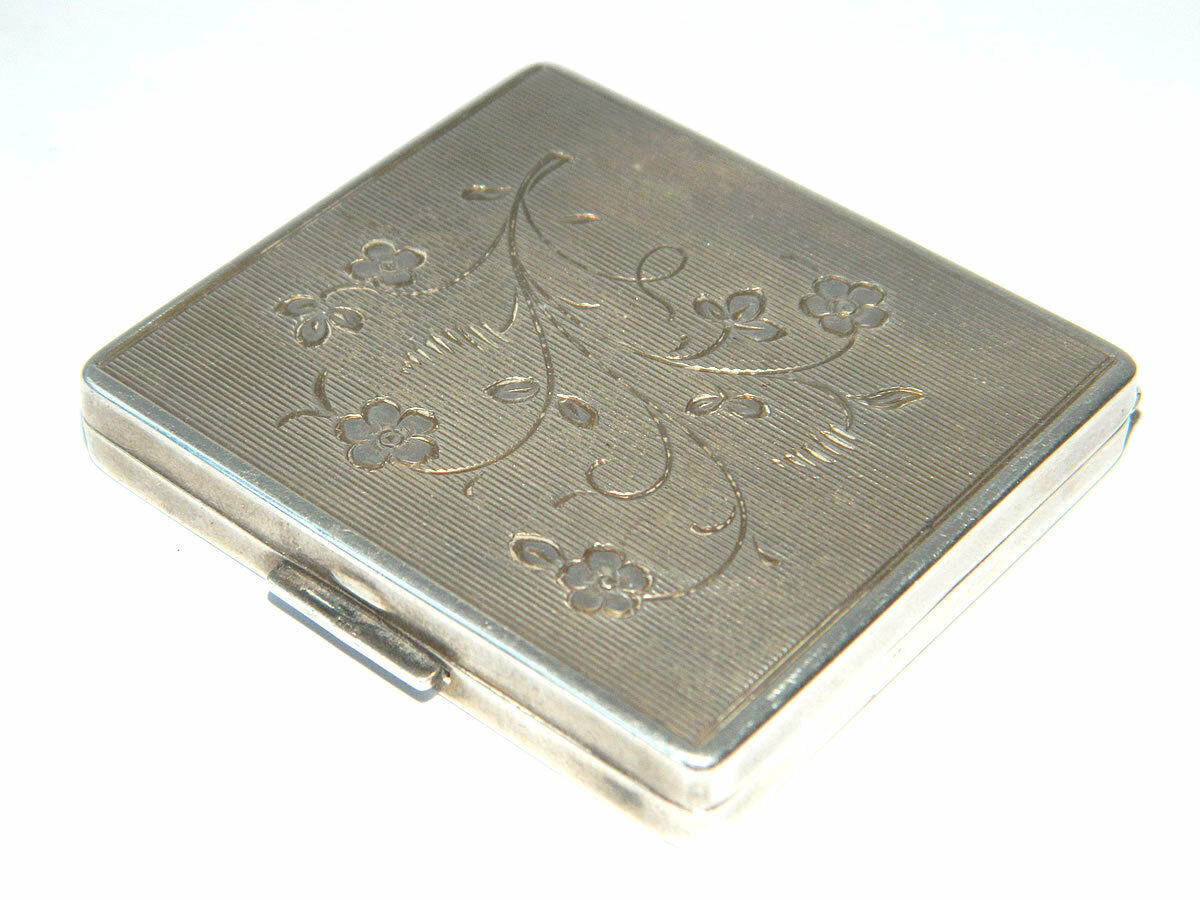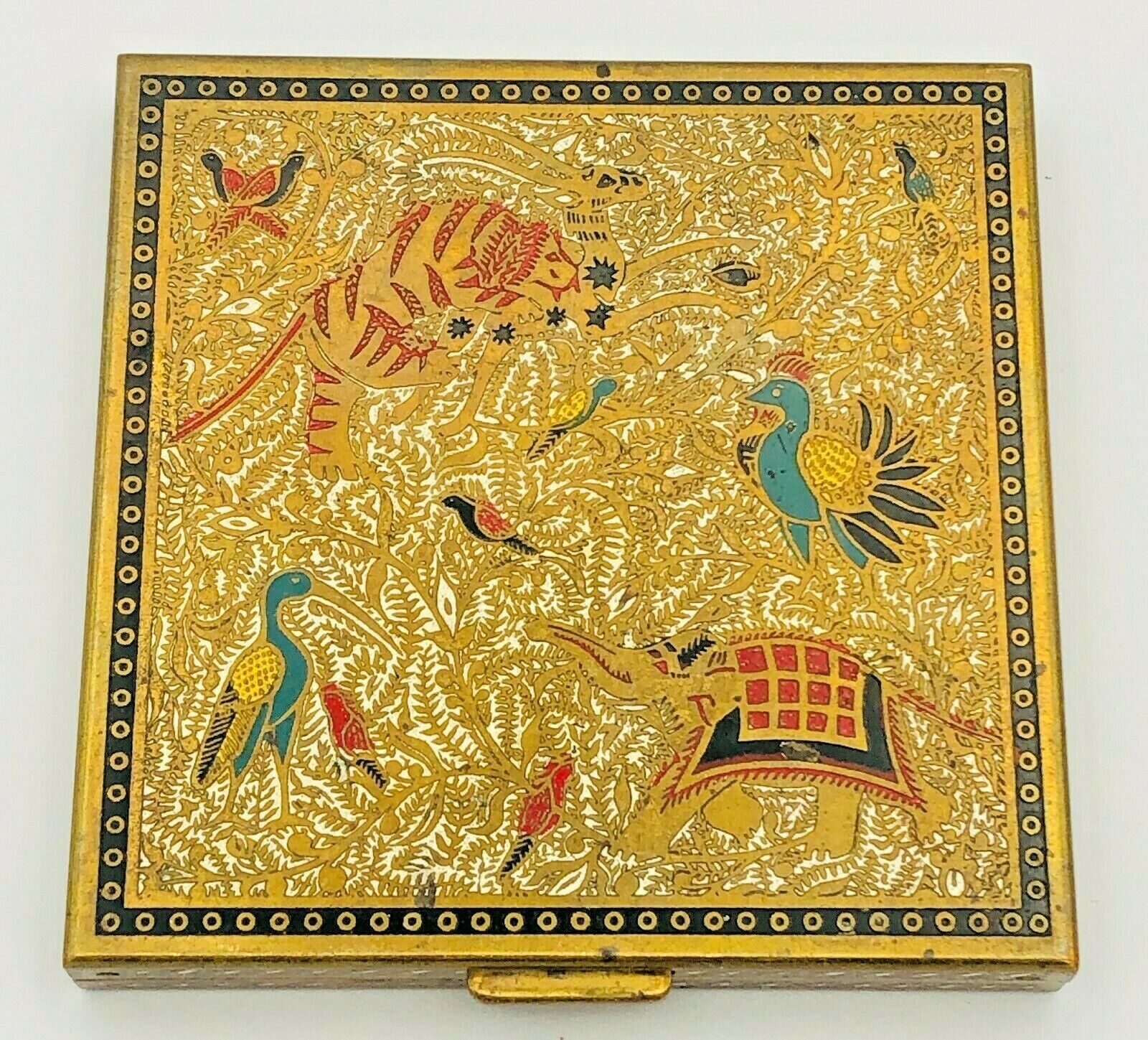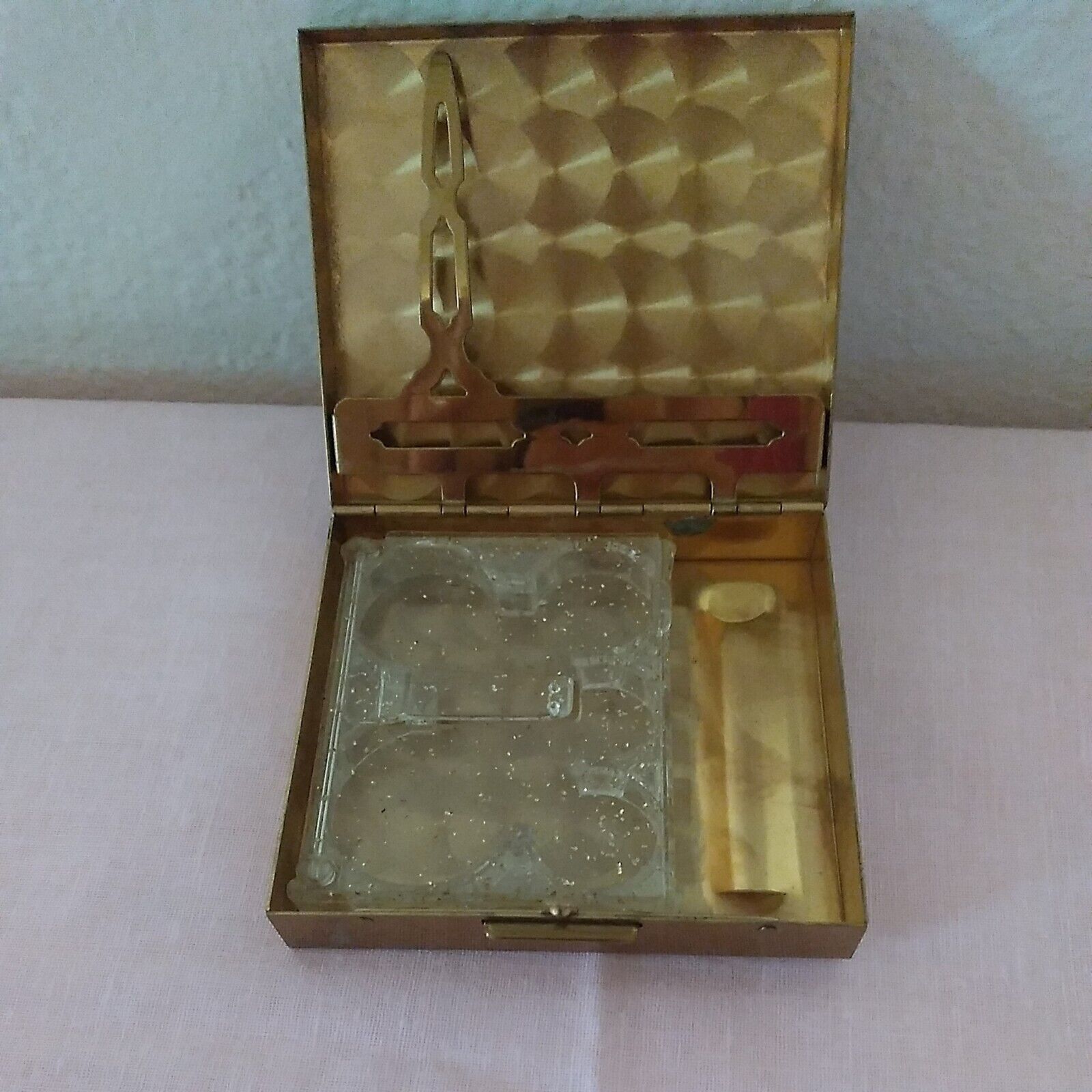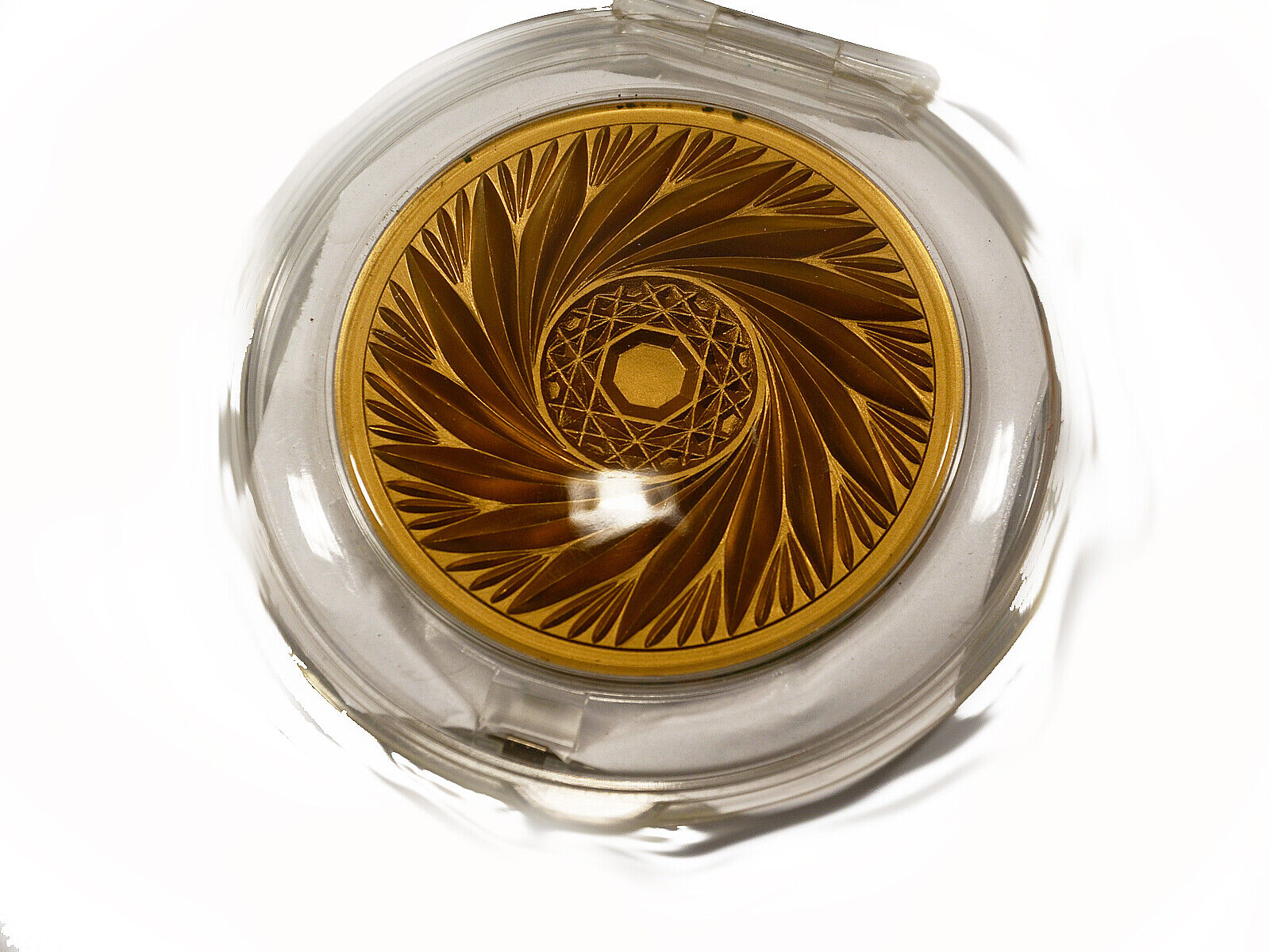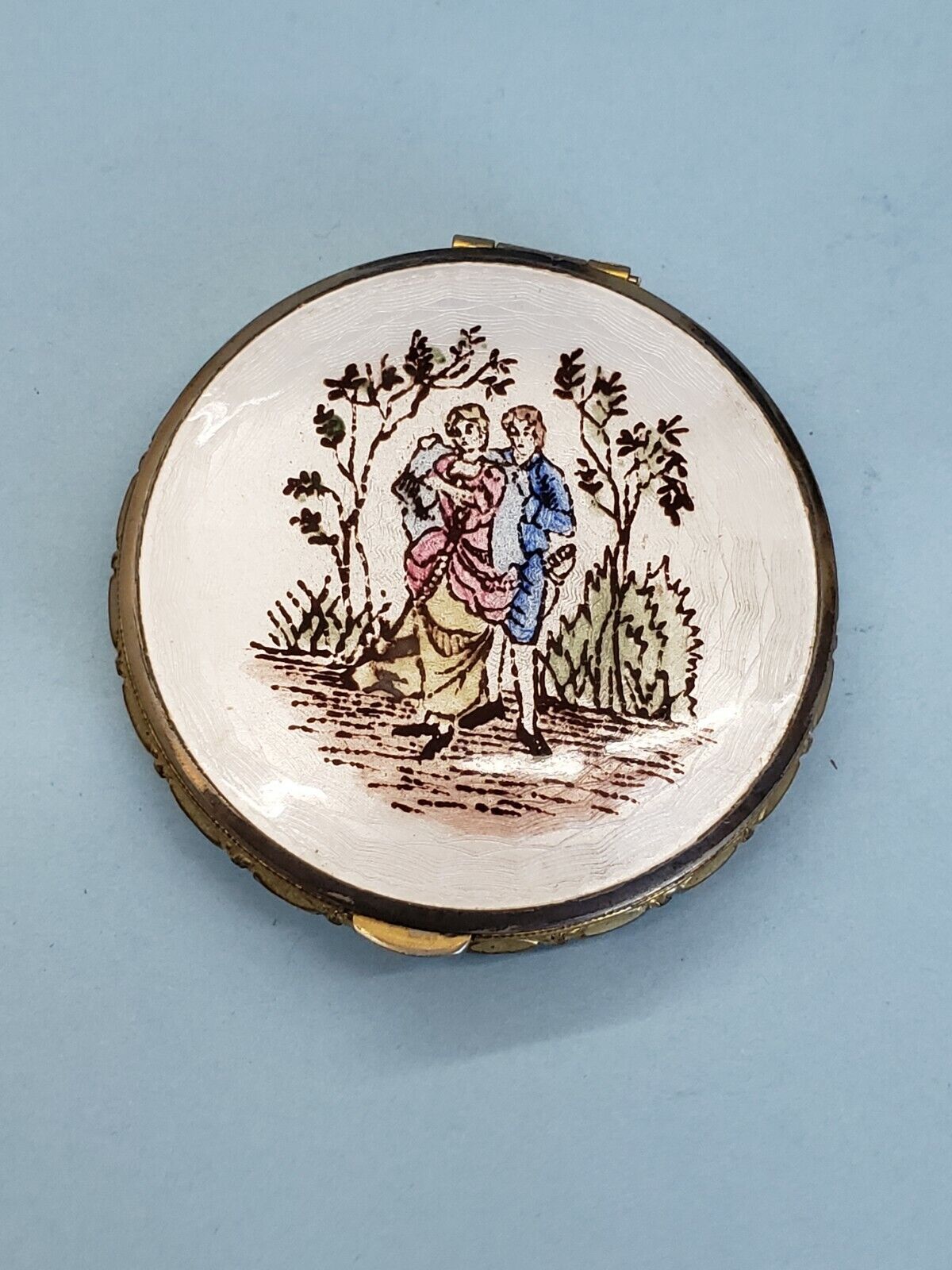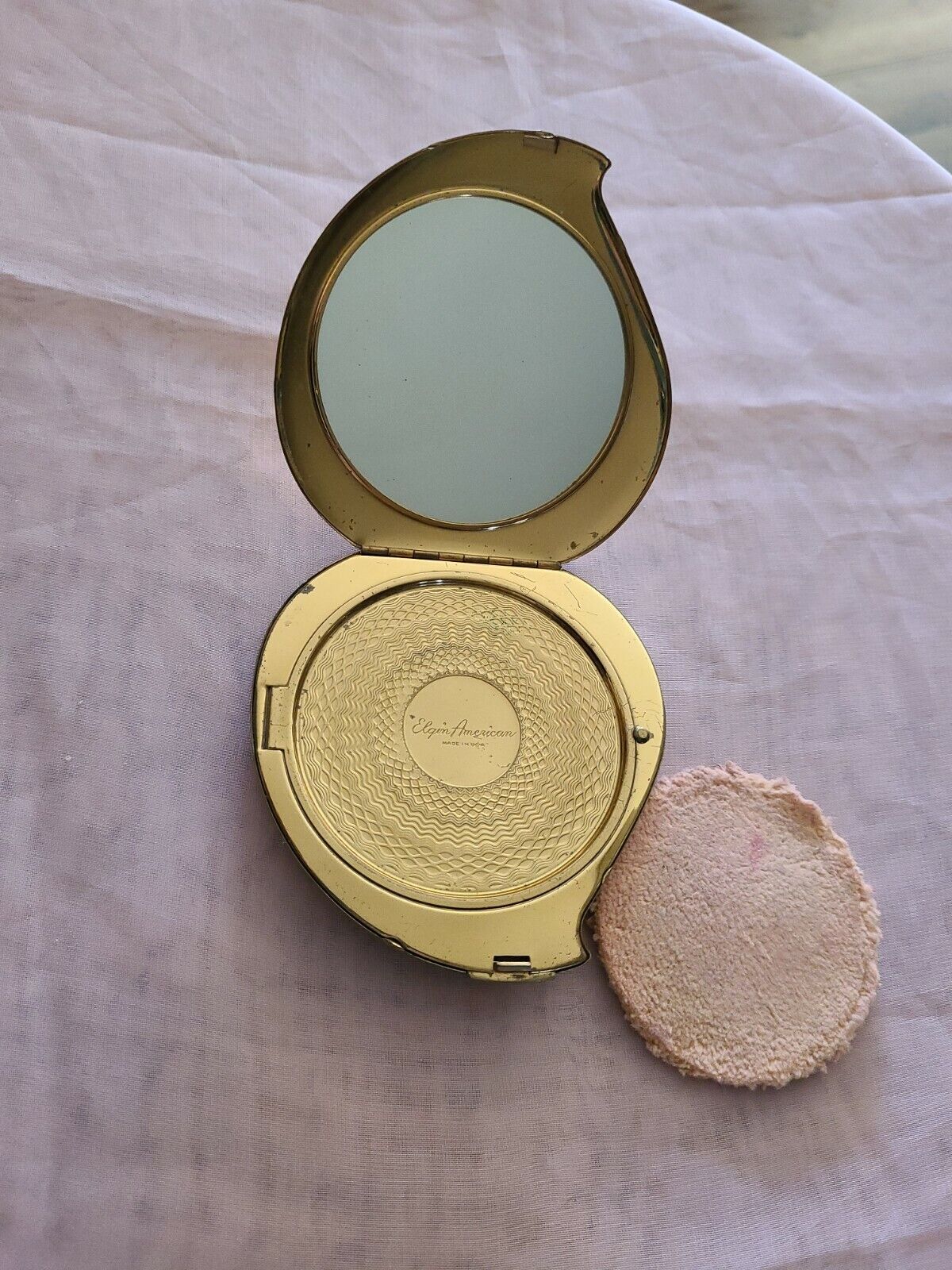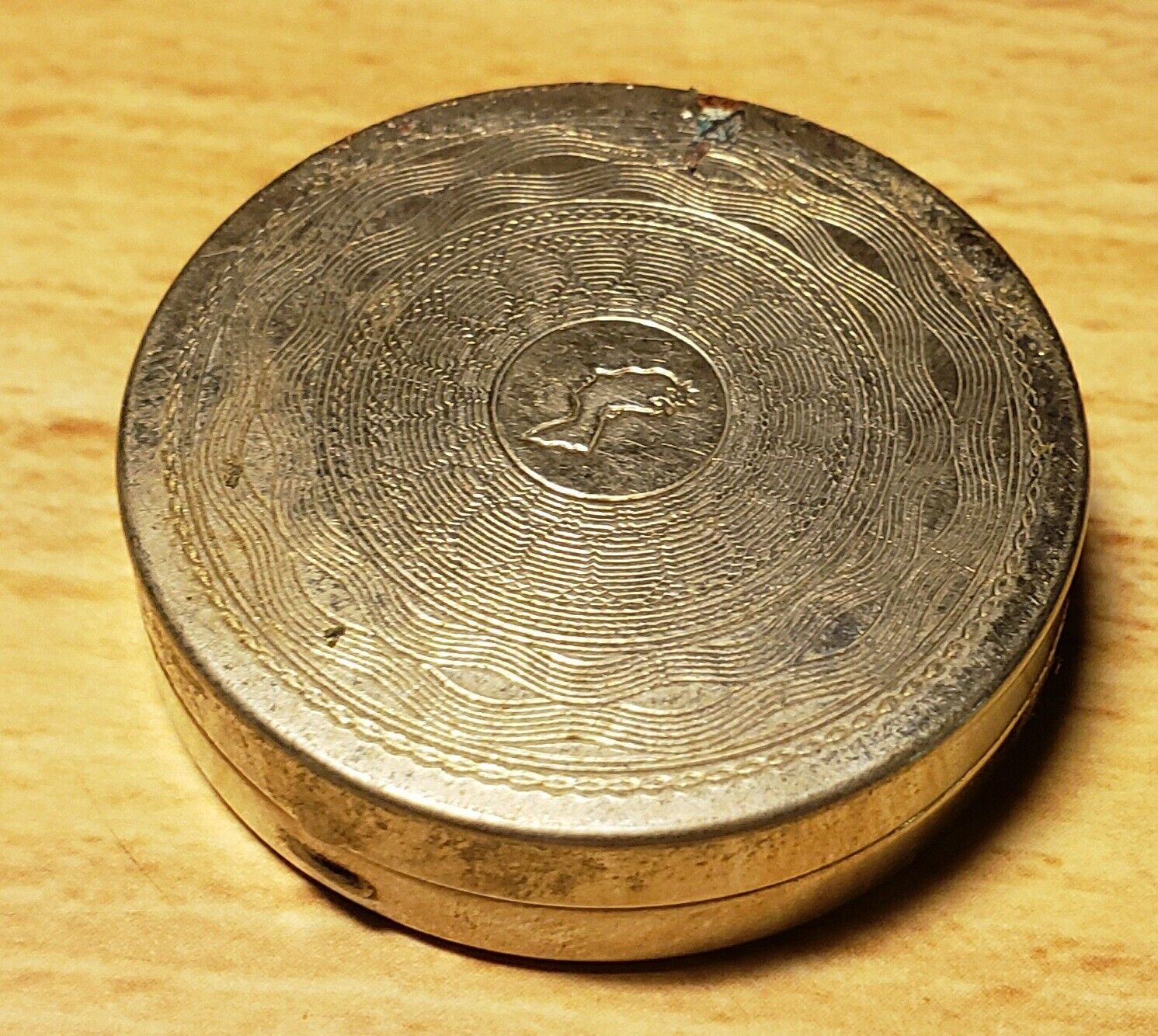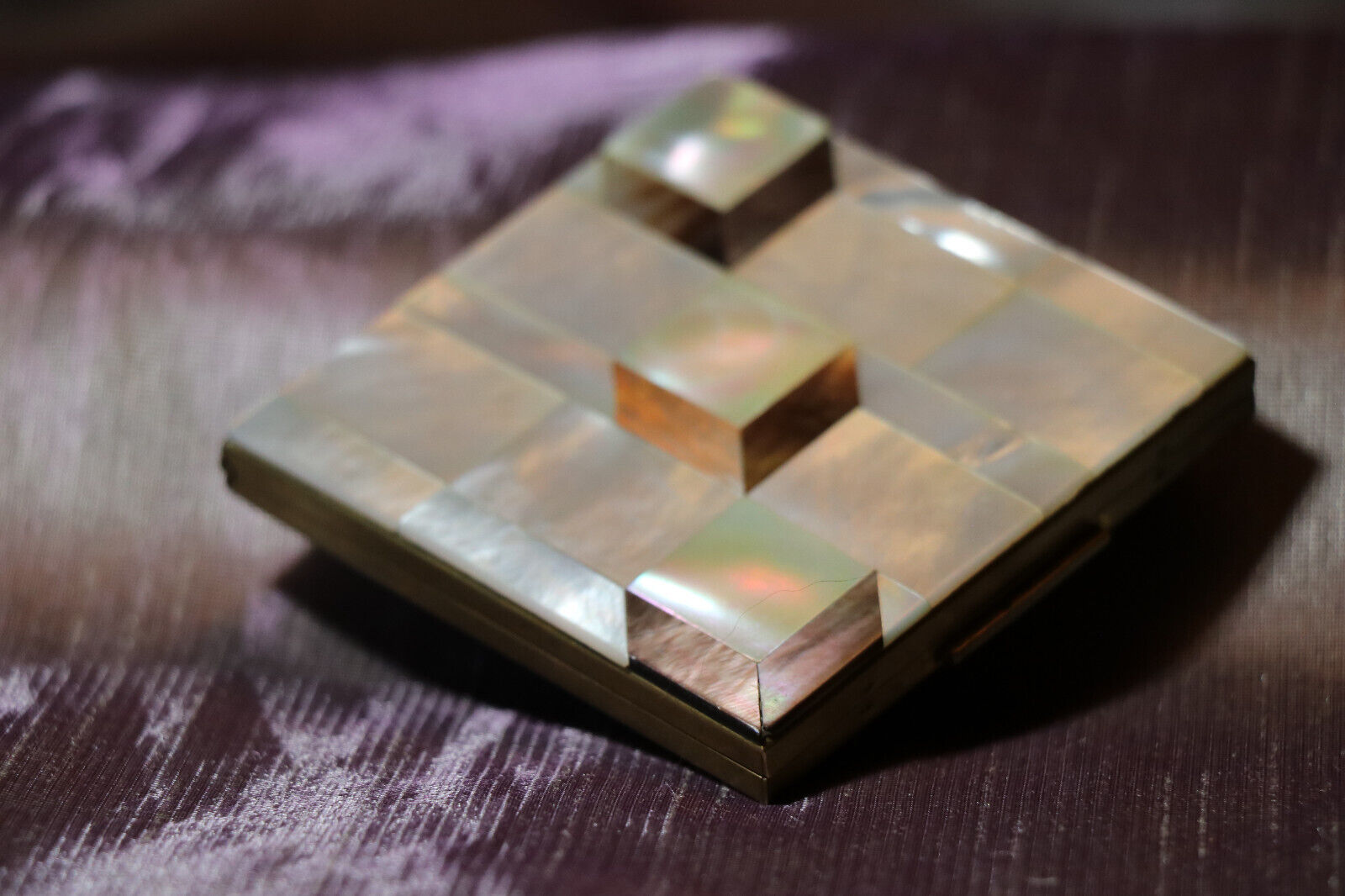-40%
Vintage Paul Flato Gold Plated Stage Coach Compact.
$ 27.45
- Description
- Size Guide
Description
Paul Flato gold plated brass stage coach compact. It has three beautifully cut stones in the coach, and is in wonderful condition. All the stones are the originals; two are red rubies and a blue sapphire rhinestones. The compact has a gorgeous gold plated finish, with a silver stage coach. It has some light scuffing wear, but nothing that detracts from the beauty of the piece. No dents, rust or corrosion.The compact opens to a
n e
mpty hallmarked "FLATO" covered powder compartment and original hallmarked powder puff; as well as a near perfect mirror. All hinges and closures work perfectly.
The compact measures approximately 2 inches by 2 1/4 inches square. My photos did not capture the glossy surface of this compact.
These compacts are becoming increasingly hard to find. This is a great buy for a wonderful piece of Hollywood history that will only increase in value.
Additional Information about the jeweler by ENID NEMY
Published: July 23, 1999
Paul Flato, the innovative American jeweler whose diamonds were worn by Hollywood stars like Greta Garbo, Rita Hayworth and Merle Oberon, died July 17, 1999 in a nursing home in Fort Worth. He was 98.
In the 1930's, he counted both socialites and movie stars as clients and his creations were seen in a number of films.
Flato jewels adorned Merle Oberon in ''That Uncertain Feeling,'' Rita Hayworth in ''Blood and Sand'' and Greta Garbo in ''Two-Faced Woman.''
Mr. Flato began his career as a watch salesman in New York in the early 1920's and soon opened his own jewelry business on East 57th Street in Manhattan. Within a short time he was one of the best known jewelers in New York.
''He was the first of the major American jewelers to do highly imaginative work on a par with European jewelers,'' said Penny Proddow, a jewelry historian and co-author with Marion Fasel of several books including ''A Century of Spectacular Jewelry'' (1996). ''He would take his ideas to his four designers -- they were his hands -- and they would go on from there to his workshop.''









